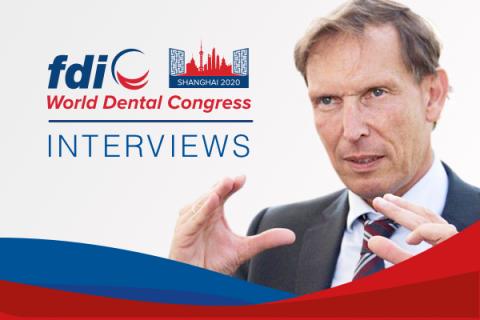WHO’s Dr Yuka Makino on inter-professional collaboration
Dr Yuka Makino
Technical Officer (Oral Health), WHO Regional Office for Africa
What does inter-professional collaboration mean?
The World Health Organization (WHO) defines inter-professional collaboration (IPC) as “multiple health workers from different professional backgrounds who provide comprehensive services by working with patients, their families, carers and communities to deliver the highest quality of care across settings.”
IPC is neither a special nor a new concept. I assume that you, as an oral health professional, have already implemented IPC in your daily clinical settings or communities’ activities. For example, you may collaborate with pediatricians, nurses, nutritionists, community health workers and dental hygienists to promote early childhood development by providing medical and oral health check-ups, nutrition counselling, vaccination and fluoride application in community health centers.
IPC can improve the understanding of how to optimize the skills of team members, sharing case management and providing better health-services to patients and the community. Eventually, IPC leads to strengthening health systems and contributes to improving health outcomes.
Why is inter-professional collaboration relevant for improving oral disease and other noncommunicable disease (NCD) outcomes?
Because of the mutual relationship between oral diseases and other NCDs, IPC is relevant for improving oral diseases and other NCDs outcomes at the same time.
Firstly, most oral diseases share modifiable risk factors (such as tobacco use, alcohol consumption and unhealthy diets high in free sugars), which are common to the four leading NCDs (cardiovascular diseases, cancer, chronic respiratory diseases and diabetes). Moreover, it is reported that diabetes mellitus is linked to the development and progression of periodontitis. To this end, IPC supports the prevention and control of both oral diseases and other NCDs directly or through control of common risk factors. Oral health professionals can play an important role in NCD prevention and control by providing oral healthcare, including clinical and non-clinical interventions (such as nutrition, tobacco cessation counselling). Likewise, non-oral health personnel can contribute to prevention and control of oral diseases.
Secondly, both oral diseases and other NCDs are closely linked with the underlying social, economic and environmental determinants that are related to healthy decisions and actions taken at the individual, community and societal level. In order to tackle both oral diseases and other NCDs, the comprehensive needs of people and communities should be at the center of health systems.
We should also empower people to take a more active role in their own health. Therefore, IPC is critical to enhance a people-centered approach, not a disease-oriented approach or a siloed approach, to tackle both oral diseases and other NCDs.
As you’ve said before, oral health workforce and education systems are relying on a dentist-centered model. Why should we explore other models?
Oral health interventions range from very simple promotion and preventive interventions to complex treatments. Depending on the required competency, an oral health workforce with an appropriate mixed skillset can improve efficiency, effectiveness, and coverage of these interventions.
However, it is reported that many dental schools continue to educate dental students based on a dentist-centric model without considering communities’ demands or fit-for-purpose. To improve this situation, interprofessional education in collaboration with other students is a necessary step in preparing a “collaborative practice-ready” health workforce that is better prepared to respond to local health needs.
Why do you think it’s important for oral health professionals to attend this session?
In this session, we will discuss how to build bridges between oral health and other healthcare professionals through IPC to improve the prevention and control of NCDs based on the latest available evidence from various perspectives by academia, youth, the non-oral-health community and international organizations. After this session, you can learn how to enhance IPC models in your daily environment.
The interviewee alone is responsible for the views expressed in this interview, it does not necessarily represent the views, decisions or policies of WHO.
Find out more...
The World Dental Congress (WDC) is a flagship event for FDI, strengthening ties and fostering collaboration within the global oral health community.



